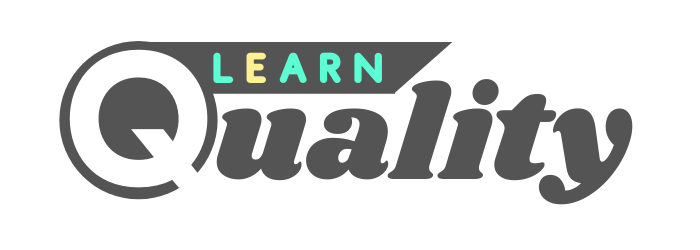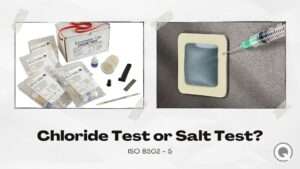Successful project management has become a critical skill set for professionals across various industries.
The Institute for Oil & Gas Sector (IOGS) values project management. It provides the “Project Quality Professional (PQP)” certification course.
This course empowers individuals in quality management, enabling them to pursue careers as QA QC Managers, Inspectors, Supervisors, Engineers, and Technicians.
Moreover, we will delve into project management, explore PQP’s intricacies, and discuss the opportunities it offers.

Understanding Project Management
Project Management encompasses planning, organizing, and executing projects with defined objectives. Additionally, it demands technical skills, leadership, and communication.
AN effective project management strategies, ultimately, guarantees project success by achieving goals, delivering products, implementing systems, and executing operations.
Moreover, it involves segmenting projects, allocating resources, setting deadlines, and monitoring progress to ensure project alignment.
Some of the key components of project management include:
Project Initiation
During this phase, we define the project’s scope, objectives, and deliverables. Additionally, we conduct feasibility studies, identify stakeholders, and assess potential risks and constraints.
Project Planning
During this phase, project managers develop a detailed plan. It outlines tasks, timelines, resource requirements, and dependencies.
Furthermore, they create a communication and stakeholder management strategy for effective collaboration and buy-in from all involved parties.
Project Execution
In the execution phase, project managers oversee plan implementation, coordinating resources and assigning tasks. Moreover, they monitor progress, ensure budget compliance, adhere to quality standards, and address emerging issues or changes.
Project Monitoring and Control
Throughout the project lifecycle, project managers continuously monitor and assess progress. They compare it to established baselines and identify any deviations or risks promptly. Moreover, they make necessary adjustments to keep the project on track.
Project Closure
The final phase formally completes the project, delivering the final product or service to stakeholders. Additionally, project managers conduct a comprehensive review to evaluate project performance. They identify lessons learned and document best practices for future reference.
Moreover, project management skills are highly transferable across industries and sectors. The ability to effectively manage resources, navigate complexities, mitigate risks, and deliver projects on time and within budget is in high demand.
Given the complexity and importance of projects in the oil and gas business, project management is essential. These projects require extensive planning, coordination with multiple stakeholders, adherence to strict safety and environmental regulations, and management of large-scale budgets.
Skilled project managers are essential for ensuring project success, minimizing risks, and maximizing efficiency. Individuals can enhance their career prospects and open doors to exciting opportunities within the oil and gas industry by acquiring expertise in project management through comprehensive certification courses like IOGS’s Project Quality Professional (PQP) program.
Project Quality Professional (PQP) Certification
The PQP certification from IOGS is a comprehensive program. It empowers professionals with tools and techniques for quality and efficiency in project management.
Additionally, this course provides a holistic understanding of quality management principles and practices. As a result, participants can drive organizational excellence.
IOGS’s Project Quality Professional (PQP) Certification:
The IOGS offers the Project Quality Professional (PQP) certification course. It meets the special needs of the oil and gas sector.
Moreover, this comprehensive program provides participants with a deep understanding of project management principles, industry best practices, and quality management techniques.
Course Highlights
Project management, firstly, is the discipline of planning, organizing, and managing resources to successfully complete a specific project within defined constraints such as time, budget, and scope.
Moreover, it involves various processes, tools, and techniques to ensure that projects are delivered on time, within budget, and to the satisfaction of stakeholders.
Some key highlights of project management include:
Project Initiation
Defining the project’s purpose, objectives, and scope. This involves identifying stakeholders, conducting feasibility studies, and creating a project charter.
Project Planning
Developing a detailed project plan requires careful consideration of various factors. First and foremost, it involves outlining the activities, timelines, resources, and budget necessary to accomplish project goals.
Additionally, this process entails defining project deliverables to clearly establish the desired outcomes. Furthermore, creating work breakdown structures aids in organizing tasks and assigning responsibilities effectively.
Lastly, developing risk management strategies is crucial to identify and mitigate potential challenges or uncertainties that may arise throughout the project.
By incorporating these transitional words, the flow of the sentence becomes more coherent and the relationship between the different components of the project plan is emphasized.
Project Execution
Implementing the project plan by coordinating and managing the resources, tasks, and activities. This involves team collaboration, monitoring progress, and addressing any issues or changes that arise.
Project Monitoring and Control
Tracking project performance is essential to ensure its successful completion. Firstly, it involves continuously monitoring project metrics to gauge progress and identify any deviations from the planned objectives.
Moreover, comparing the actual performance against the initial goals provides valuable insights into the project’s overall effectiveness. In addition to that, making necessary adjustments is crucial to keep the project on track and address any potential issues that may arise.
This includes proactively managing risks to minimize their impact and ensuring quality control throughout the project lifecycle. By employing these strategies, project managers can maintain project alignment and achieve desired outcomes.
Project Closure
Finalizing all project activities and deliverables requires careful attention to detail and a systematic approach. First and foremost, it involves conducting project reviews, which provide valuable insights and feedback on the project’s overall performance.
Additionally, documenting lessons learned ensures that knowledge and experiences gained throughout the project are captured for future reference.
Lastly, transitioning the project’s outputs to the operational phase is a critical step that ensures a smooth handover and successful implementation.
Furthermore, it is worth noting that project management encompasses a wide range of methodologies and frameworks, such as Waterfall, Agile, and Scrum.
These diverse approaches offer different strategies for effectively managing projects. If you have any specific questions or require further clarification, please don’t hesitate to ask!
Take Action and Enroll Today
Are you ready to advance in the oil and gas industry? Enroll in IOGS’s PQP certification course for career growth. Gain expertise in project management and quality control to secure a promising future in this field.
Enroll in PQP to excel as a QA QC Manager, Inspector, Supervisor, Engineer, or Technician. These roles offer excellent prospects and IOGS’s PQP course covers essential principles and techniques.
Taught by industry professionals, it provides practical insights and hands-on exercises for skill development. IOGS is renowned for excellence in education and tailors its PQP program to the industry’s demands.
Learn efficient project management elements and gain a strong network within the oil and gas industry. Access exciting job opportunities and valuable connections by joining the PQP course at IOGS.
Enhance your project management skills and establish yourself as a quality management professional. Enroll in PQP today and embark on a path towards success in the oil and gas industry.
Conclusion
In a competitive professional landscape, acquiring project management skills and certifications is crucial for career advancement.
Moreover, the Project Quality Professional (PQP) course offered by IOGS serves as a gateway to excel in quality management within the oil and gas industry.
By completing this comprehensive program, individuals not only gain a deep understanding of project management principles but also learn quality assurance and control techniques.
As a result, the PQP certification empowers professionals to take charge of projects, ensuring adherence to quality standards and driving organizational success.
Additionally, embracing the opportunity to become a Project Quality Professional opens a world of possibilities in quality management.
To take the first step towards a rewarding and fulfilling career, visit the IOGS website and explore more about the course.
Course Link: https://www.iogs.org/project-quality-professional-certification
Click here to view the video: https://www.youtube.com/watch?v=AHH2fQra1YM
Institute Website: https://www.iogs.org/










